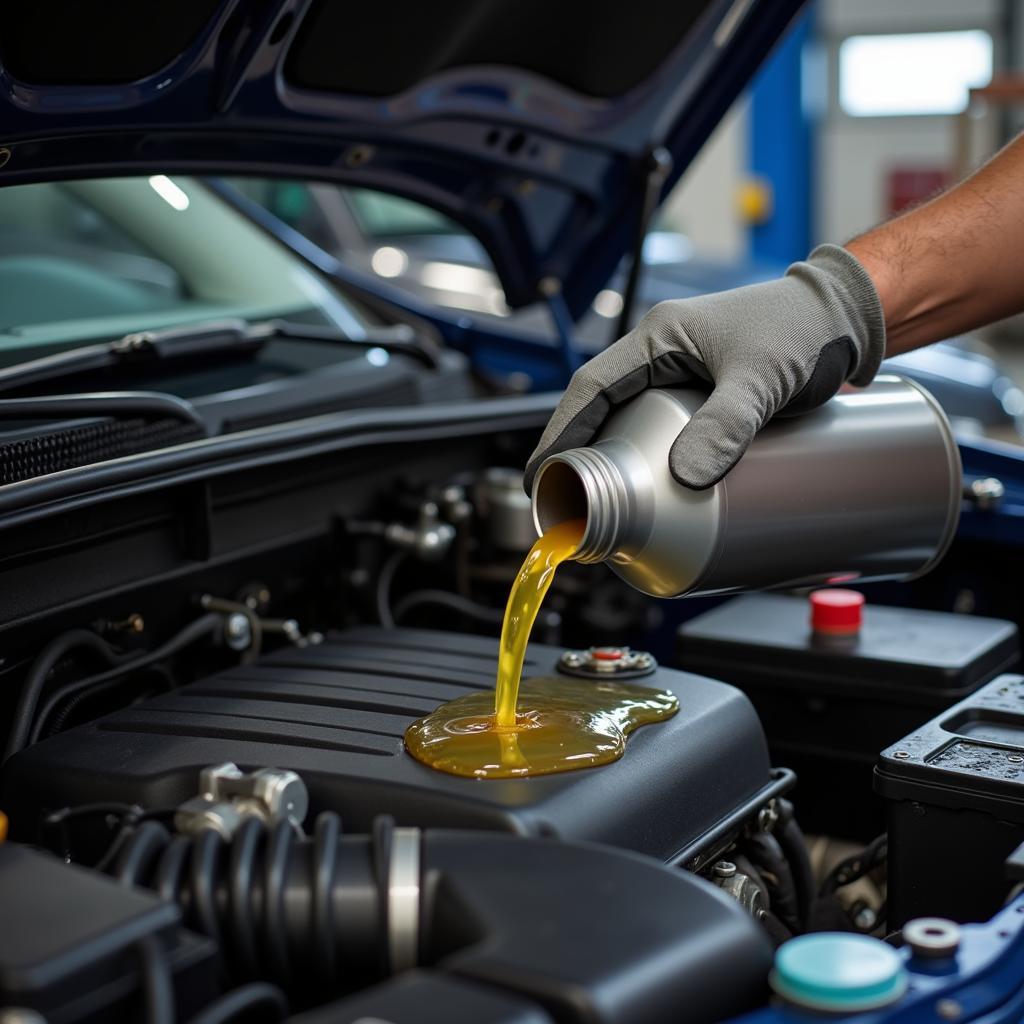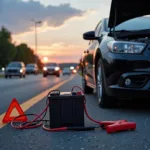A car service is more than just an oil change; it’s a comprehensive checkup that keeps your vehicle running smoothly and safely. But with so many components under the hood, it can be confusing to know exactly what should be included. Whether you’re driving a brand new car or a reliable old friend, understanding what should be covered in a car service empowers you to make informed decisions about your vehicle’s maintenance.
Essential Aspects of a Comprehensive Car Service
A thorough car service typically addresses several key areas, ensuring your vehicle receives the attention it needs to perform at its best.
1. Fluid Checks and Changes
Oil Change: The lifeblood of your engine, regular oil changes are crucial. The mechanic will replace the old oil and install a new filter, ensuring proper lubrication and preventing premature wear and tear.
Other Fluids: Your car relies on a variety of fluids beyond engine oil. A car service should include checking and topping off essential fluids like coolant, brake fluid, power steering fluid, transmission fluid, and windshield washer fluid.
2. Filter Replacements
Air Filter: Just like your lungs need clean air, your engine needs a clean air filter to function efficiently. A clogged air filter restricts airflow, reducing performance and fuel economy.
Cabin Air Filter: This often-overlooked filter cleans the air you breathe inside the car. Replacing it ensures clean, allergen-free air for a more comfortable ride.
3. Brakes Inspection
Brake Pads and Rotors: Your brakes are your car’s most important safety feature. The mechanic will inspect the brake pads and rotors for wear and tear, recommending replacement if needed.
Brake Fluid: Brake fluid is hygroscopic, meaning it absorbs moisture over time. This can lead to reduced braking performance. A car service will include checking and topping off the brake fluid.
4. Tire Check and Rotation
Tire Pressure and Tread Depth: Properly inflated tires are crucial for safety, fuel efficiency, and tire longevity. The mechanic will check your tire pressure and tread depth, advising if you need new tires or a rotation.
Tire Rotation: Rotating your tires regularly ensures even wear and prolongs their lifespan.
5. Lights and Electrical
Headlights, Taillights, and Signals: The mechanic will inspect all your lights, ensuring they are working correctly for optimal visibility and safety.
Battery: The battery powers everything from starting your car to running the electronics. A car service will include checking the battery’s health and charge.
Beyond the Basics
While the components listed above represent the core of a standard car service, a truly comprehensive service often goes further.
“A thorough inspection can reveal potential issues before they become major problems, saving you time and money down the road,” says Master Mechanic, John Smith, of Smith’s Auto Repair.
Additional checks might include:
- Belts and hoses: Checking for cracks, wear, and proper tension.
- Suspension and steering: Inspecting for leaks, damage, and wear.
- Exhaust system: Checking for leaks, rust, and proper function.
- Spark plugs: Inspecting for wear and ensuring optimal engine performance.
Conclusion
Understanding what should be covered in a car service empowers you to maintain your vehicle proactively. By addressing potential issues early on, you can avoid costly repairs, extend the life of your car, and ensure a safe and enjoyable driving experience. Remember, regular car services are an investment in your vehicle’s longevity and your peace of mind.



